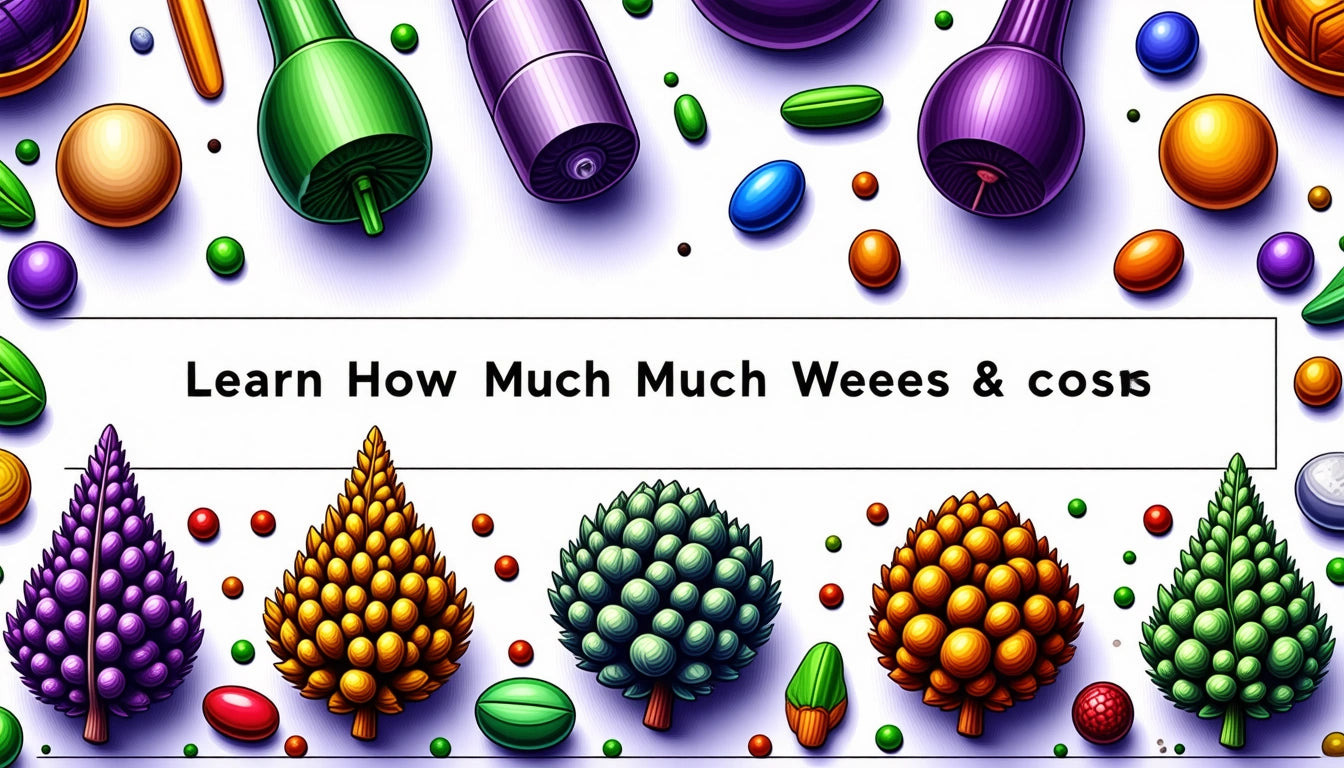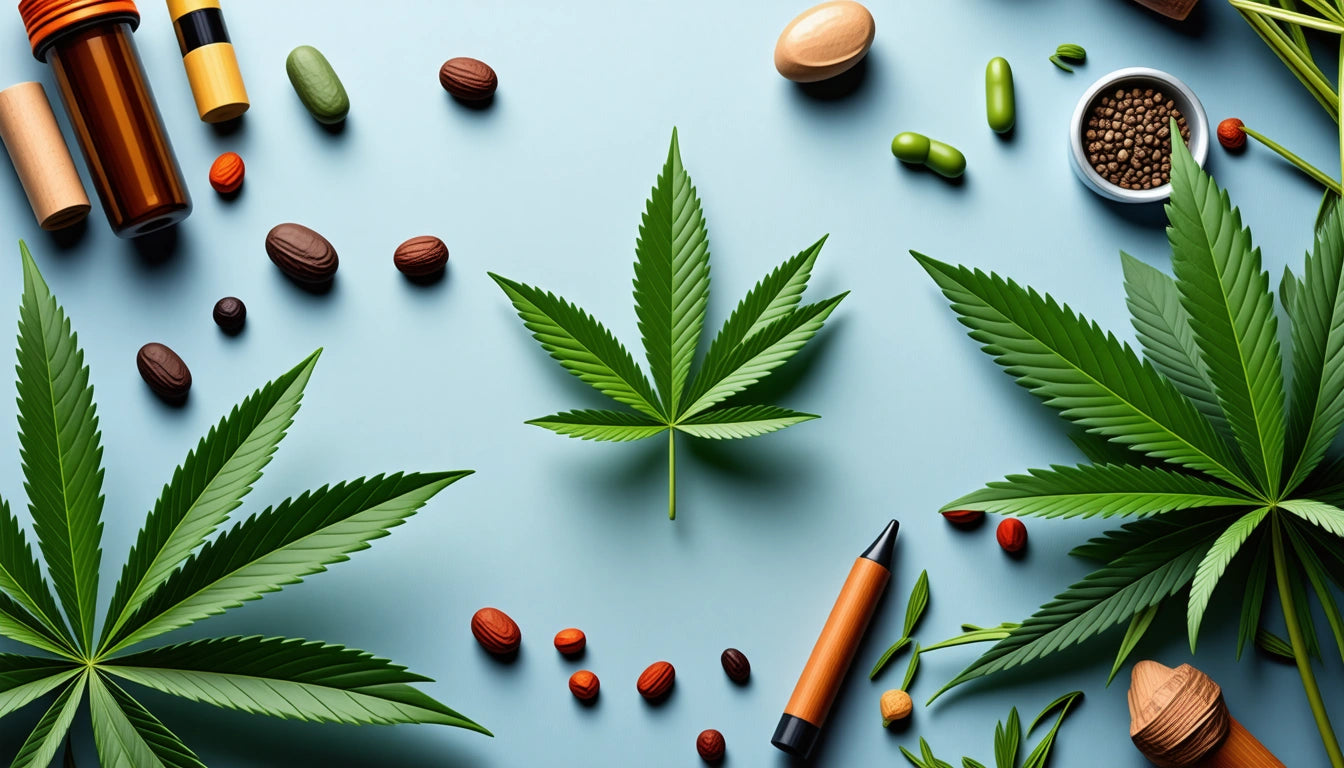Table of Contents
Understanding the Cost and Quantity of Weed: A Comprehensive Guide
Cannabis pricing can be confusing for both new consumers and experienced users alike. With varying quantities, regional differences, and quality considerations, understanding how much weed costs requires knowledge of several factors. This guide breaks down everything from basic measurements to price expectations across different markets.
Understanding Weed Measurements: From Grams to Pounds
Cannabis is typically sold in specific weight increments that follow a combination of metric and imperial systems:
- Gram: The base unit for small purchases
- Eighth (3.5g): One-eighth of an ounce, a common recreational purchase
- Quarter (7g): One-quarter of an ounce
- Half ounce (14g): Half of an ounce, often called a "half"
- Ounce (28g): A full ounce, sometimes referred to as a "zip"
- Quarter pound (113g): Often called a "QP"
- Half pound (226g): Sometimes called an "HP"
- Pound (453g): The largest standard unit, rarely purchased by individual consumers
Understanding these measurements is crucial when discussing how much weed you're getting for your money.
Price Points by Quantity: What to Expect
Small Quantities (Grams to Eighths)
For small purchases, prices vary significantly by location and quality:
- Single gram: $5-$20
- Eighth (3.5g): $25-$60
These smaller quantities typically have the highest per-gram cost but are popular for trying new strains or occasional users.
Medium Quantities (Quarters to Ounces)
Mid-range purchases offer better value:
- Quarter (7g): $50-$100
- Half ounce (14g): $90-$180
- Ounce (28g): $150-$350
According to this guide to ounces, purchasing a full ounce typically provides the best value for regular consumers while staying within personal possession limits in most legal states.
Bulk Quantities (Quarter Pounds to Pounds)
Larger quantities are primarily relevant to medical patients with higher needs or in wholesale contexts:
- Quarter pound: $400-$800
- Half pound: $700-$1,500
- Pound: $1,400-$3,000
The cost of a pound of weed varies dramatically based on quality, location, and market conditions.
Factors Affecting Weed Prices
Several variables influence how much is weed in different contexts:
Quality Tiers
Cannabis is often categorized into quality tiers:
- Budget/Economy: Lower potency, may contain trim or shake
- Mid-grade: Decent quality with moderate potency
- Premium/Top-shelf: High potency, optimal growing conditions, superior genetics
- Exotic/Craft: Small-batch, rare strains with exceptional characteristics
Market Maturity
Newer legal markets typically have higher prices due to:
- Limited competition
- Higher startup and compliance costs
- Supply constraints
As markets mature, prices typically decrease. For example, Colorado and Washington have seen significant price drops since their markets opened.
Regional Price Variations
Location significantly impacts how much is a bag of weed:
Legal State Markets
States with established recreational markets (Colorado, California, Oregon) typically offer:
- More competitive pricing
- Greater selection
- Seasonal sales and promotions
Newer legal markets (Illinois, New York) often have:
- Higher prices
- Limited product availability
- Fewer discount opportunities
Medical-Only Markets
States with only medical programs typically have:
- Higher prices than mature recreational markets
- Limited product selection
- Additional costs (medical card fees)
Understanding legal possession limits is also essential when considering purchases in different regions.
Purchasing Considerations: Quality vs. Quantity
When deciding how much weed should I buy, consider:
Usage Patterns
Your consumption frequency and method affect optimal purchase size:
- Occasional users: Smaller quantities (1-3.5g) stay fresher
- Regular users: Quarters to ounces offer better value
- Medical patients: Larger quantities may be necessary for consistent treatment
Storage Capabilities
Proper storage is essential for maintaining potency and freshness. Using humidity control packs in airtight containers can extend the shelf life of larger purchases, making bulk buying more practical for those who don't consume quickly.
Storage and Preservation: Maintaining Value
Proper storage is crucial when purchasing larger quantities:
- Temperature: Store between 60-70 °F (15-21 °C)
- Light: Keep in a dark place to prevent degradation
- Humidity: Maintain 59-63% relative humidity
- Air exposure: Use airtight containers to prevent oxidation
These practices help maintain potency and prevent mold growth, especially important when determining how much weed is too much for your consumption rate.
Smart Buying Strategies for Cannabis Consumers
To get the most value when purchasing cannabis:
- Take advantage of first-time discounts at dispensaries
- Look for daily deals and happy hours for specific products
- Consider membership or loyalty programs for regular purchases
- Buy in slightly larger quantities if you consume regularly
- Research typical prices in your area before shopping
Understanding the comprehensive costs associated with cannabis, from production to retail markup, helps consumers make informed decisions about their purchases.
Whether you're wondering how much is an eighth of weed in your area or how much weed is in a blunt, this guide provides the framework to understand cannabis quantities and pricing across different markets and circumstances. By considering quality, quantity, and proper storage, consumers can maximize value while ensuring their cannabis remains potent and enjoyable.











Leave a comment
All comments are moderated before being published.
This site is protected by hCaptcha and the hCaptcha Privacy Policy and Terms of Service apply.